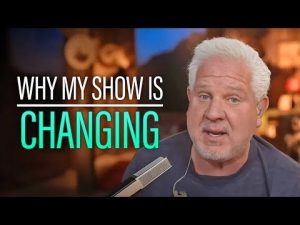### The Great Divide: Political Language and the Rise of Divisiveness
In today’s political arena, language matters—a lot! It’s not just a matter of the words that come out of politicians’ mouths; it’s the power those words wield and the divisions they create. Recently, a news segment highlighted the stark contrast between the rhetoric of the left and the right, focusing on how politicians frame their opponents. The whole situation is nothing short of a comedy of errors—or a tragedy, depending on which side of the aisle you’re on.
Take, for instance, the notion that some politicians consider themselves paragons of civility while tossing around fiery words like “enemy” and “dictator” when referencing their opponents. The segment showcased a colorful discussion around Tim Walz, a governor who fancies himself a unifier. Yet, his condemnation of the divisive language emanating from the White House could be described as a case of “the pot calling the kettle black.” Perhaps he should take a closer look at his own party’s statements before pointing fingers.
The crux of the matter lies in the double standards apparent in political discourse. While politicians like Walz preach about the dangers of division and bullying, their own words can be just as sharp and cutting. References made by others in the segment showed examples of sharply critical comments directed at Donald Trump—from calling him a “wannabe dictator” to linking ICE agents to the Gestapo. It’s a wonder that they haven’t tripped over all that irony yet.
Then there’s the hot topic about rights and their origins—an ever-relevant discussion in a country built on the belief that rights come from the Creator, not from government regulations. A recent exchange involving Senator Tim Kaine showed a glaring disconnect in understanding these foundational principles. While individuals like Kaine may argue that our rights are government-given, true conservatives assert that they are inalienable and unassailable—granted by God Himself. This fundamental belief is what empowers citizens against tyranny, yet it’s painfully overlooked by those who seem to put faith in government over God.
In a humorous twist, one commentator remarked on the absurdity of a senator not grasping a basic concept that has shaped the very foundation of the nation. His bewildered reaction to Kaine’s radical notion—that rights could come from anywhere other than God—has become a talking point for those who appreciate the irony of the situation. It’s as if we are living in a real-life sitcom where the characters just don’t get it, and the audience can’t help but applaud their cluelessness.
Ultimately, the discussion reveals a broader issue in contemporary politics: the ongoing struggle for clarity amidst chaos. The great divide in language and rhetoric only serves to highlight the growing chasm between conservative ideals and progressive talking points. As the nation grapples with these issues, it becomes clear that understanding and addressing divisiveness in political speech can no longer be brushed aside. It’s time to put down the stones and bridges and start building common ground through honest conversation—if only the politicians would be willing to join in the discussion.







